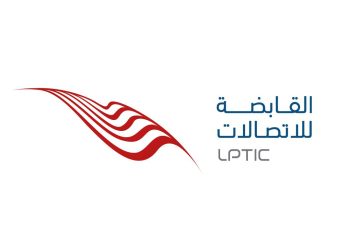Musbah Akkari, the new chairman of the state National Commercial Bank (NCB), one of the largest banks in Libya, said his bank has a new 2023 strategic plan to lift the standard of its e-banking services.
He was speaking to Libya Herald at the 4th Libyan Banking Sector Development Forum held in Tunis 8-9 November. Akkari was formerly chairman of the largest Libyan bank, the state-owned Jumhouria bank. He is also a member of the influential Central Bank of Libya Libyan Dinar Exchange Rate Committee.
The NCB is headquartered in eastern Libya and Akkari was appointed by Ali Hibri, the eastern-based Deputy Governor of the Central Bank of Libya.
Updated Oracle core system
Reviewing the progress achieved and planned by his bank since he took over last year as the new chairman, Akkari said his bank had integrated its version 12 of the new Oracle Flexcube core banking system – upgrading from the outdated version 4. Moreover, he admitted that not all the bank’s branches had historically been connected and that the bank had three different operating systems at one stage.
The updated system is superior in many ways, he explained, especially for his bank’s plans to improve new improved e-banking and Islamic banking services.
He also revealed that the old core banking system (V4) had created some dirty data and that the NCB had agreed with one of the largest audit companies to clear up its historic data.
Growth and profit
Akkari said his bank is improving and growing as reflected in its LD 200 million profit (to 30 September 2022) and its foreign currency sales. Up to 31 October this year the NCB’s share of foreign currency sales rose to third and the NCB chairman was realistically optimistic that the NCB will become first. ‘‘This is a good sign of growth’’, he said, and regains the confidence of customers who left the bank.
The NCB chairman said his board had agree three main policy areas: Loans; ATMs; and Hire Purchase.
Refurbishing war damaged and old branches
Akkari said his bank had spent ‘‘millions’’ in 2022 refurbishing 13 branches due to war damage. Many of these branches were forced to leave the areas of fighting and share locations with other branches. Another seven new branches were opened across Libya. In 2023 another ‘‘large’’ budget will be set to continue to refurbish 20 branches with the bank’s new modern look. This will bring the number of NCB branches across Libya to 100 branches, the second largest network in Libya.
Strategic plan for e-banking: ‘‘No more queues at branches’’
The new NCB chairman said his bank has a new 2023 strategic plan to provide customers better access to its e-banking services. This would include access through debit cards and mobile banking to help end queues at branches to access cash and help solve the country’s general liquidity problem. ‘‘No more queues at NCB branches in 2023’’, he promised. The e-banking services would enable customers to transfer money, buy mobile phone and internet top-ups.
The bank will also offer new loans and credit services through its existing cards, offering more services and products through e-banking.
Another 150 ATMs by end of Q1 2023
Akkari revealed that the NCB is planning to install another 150 new ATMs by the end of Q1 of 2023 -to add to its existing 150 machines. ‘’This will give us the largest ATM network in Libya’’ he added proudly.
Cultural gap
Recognising that there is a cultural gap and a tradition in Libya of visiting bank branches in person, Akkari said the NCB is launching a marketing programme to encourage his customers to use e-banking instead. In this regard, his bank is starting a training programme for 50 trainers next week who will go out on a Libya-wide marketing drive.
9,000 new PoS machines planned
They will market Point-of-Sale (PoS) machines so more merchants install them and join the bank’s network. The bank currently has 1,000 PoS machines but plans to market from the end of 2022 to mid-2023 another 9,000 new PoS machines to merchants.
Mobimal app
They will also market the NCB’s Mobimal App to encourage mobile banking. The NCB chairman said their mobile phone app is the only app in Libya that manages international as well as local cards.
Targeting 200,000 new e-banking customers
Akkari revealed that his bank are targeting 200,000 new e-banking customers by the second half of 2023, of which by 30 October this year 100,000 new customers had been gained. He said the new core banking system has enabled this increase as the outdated system had been a hindrance to e-banking.
End of Libya’s cash liquidity problem? (libyaherald.com)











